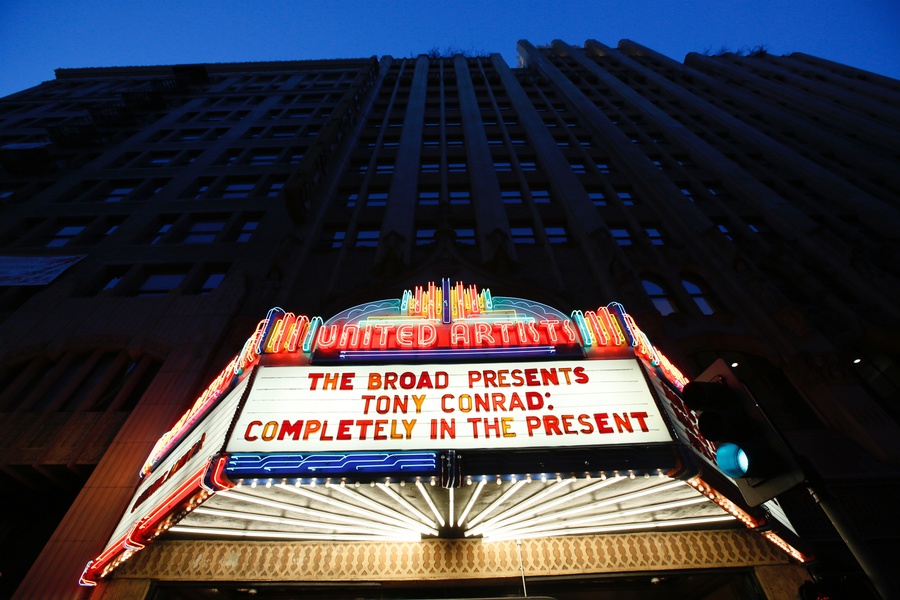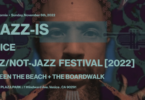- Save The Date: Azz-Is Jazz/Not-Jazz Festival on Sunday, Nov 6th in Venice, CA - October 22, 2022
- Bay Area Singer-Songwriter Evelyn Rose Releases New Album “Little Moments” - October 14, 2022
- MR PUZL – “Tomorrow – Original Mix” (feat. Maarten Goji) - July 20, 2022
Last week, GroundSounds was fortunate enough to get invited to the Los Angeles Premiere of Tony Conrad: Completely In The Present, Co-Presented by The Broad and The Theatre at ACE Hotel. With a special Q&A session after the movie led by Henry Rollins and a performance from Kim Gordon, the evening was both educational and highly enlightening. The documentary is a non-fiction film examining the pioneering life and works of artist, musician, and educator, Tony Conrad. Utilizing intimate footage Tony and his collaborators shot over the last twenty-two years, as well as his own archive of recordings and films, Tony Conrad: Completely in the Present mirrors Conrad’s own playfully radical approach to art making. The non-linear structure allows Conrad to wildly free associate his streams of consciousness, revealing an honest and humane way of navigating a remarkable, creative life. We loved the story of his creative life and while some his work is definitely extremely minimalist and experimental, there is always a clear sense of the idea behind art, which is to do something new and different.
Tony Conrad was one the great American artists of our time, yet to the world at large he remains criminally under appreciated. Since the early 1960s, Conrad’s films and compositions have been the stuff of legend for artists and musicians everywhere. His vast, inter-disciplinary repertoire has single-handedly created and influenced major film and compositional movements. He performed in and recorded the soundtrack to Jack Smith’s legendary Flaming Creatures; he turned the paradigms of cinema upside down with The Flicker, a film composed of only black and white frames; his development and practice of Just Intonation and Minimalism through his work with Stockhausen and La Monte Young still has the music establishment scratching their heads; his pivotal role in the formation of The Velvet Underground has directly or indirectly influenced everyone who has picked up a guitar since; as an early adopter of activist public access television he democratized the emerging medium of portable video. In his later years he continued to perform and make work that pushed the boundaries of reason for which he has finally begun






